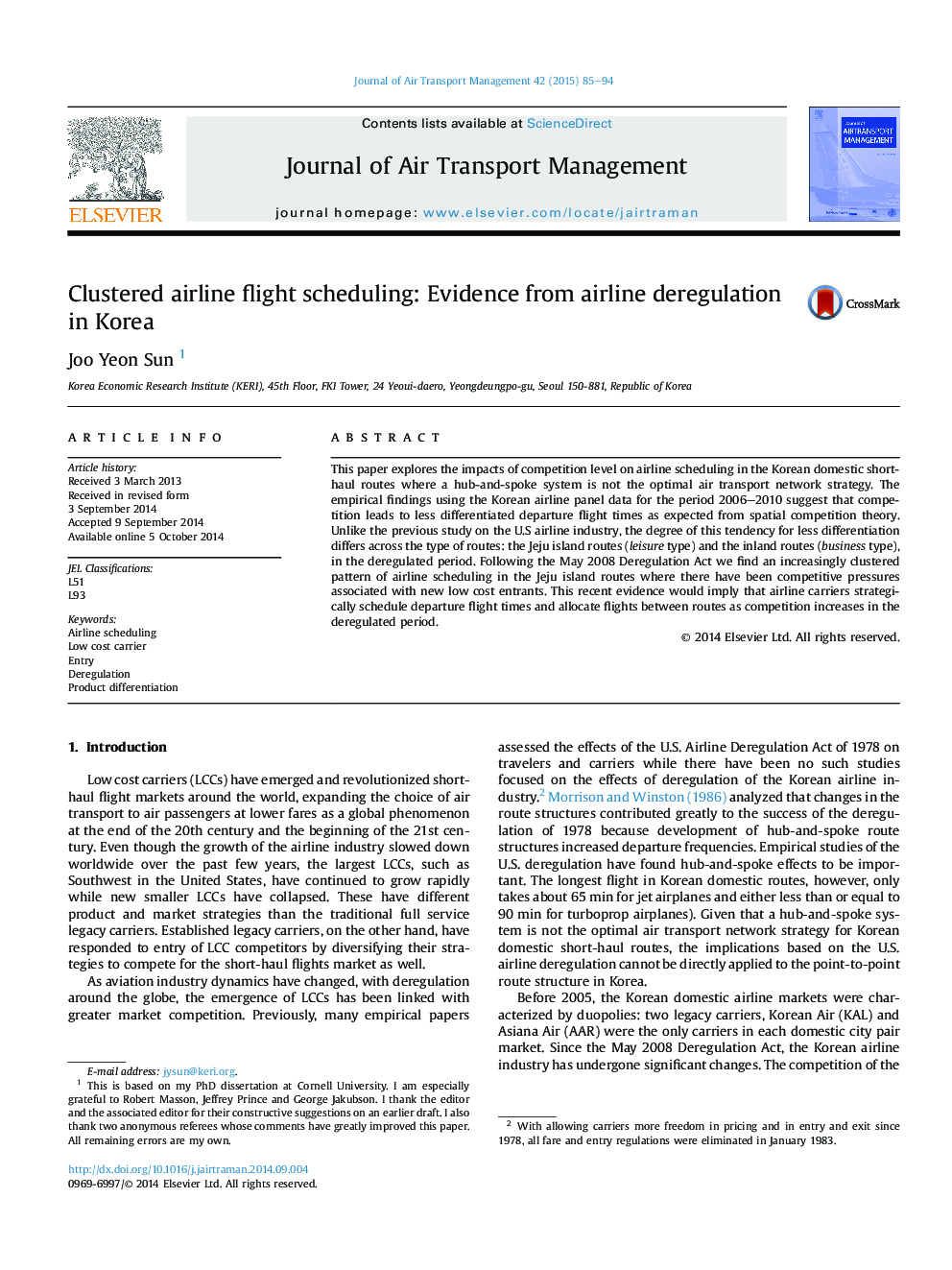| Article ID | Journal | Published Year | Pages | File Type |
|---|---|---|---|---|
| 1030809 | Journal of Air Transport Management | 2015 | 10 Pages |
•We test spatial competition model empirically for the short-haul routes.•We construct two measures of competition, and compare the estimated impacts.•Deregulation would have asymmetric effects across the type of routes.
This paper explores the impacts of competition level on airline scheduling in the Korean domestic short-haul routes where a hub-and-spoke system is not the optimal air transport network strategy. The empirical findings using the Korean airline panel data for the period 2006–2010 suggest that competition leads to less differentiated departure flight times as expected from spatial competition theory. Unlike the previous study on the U.S airline industry, the degree of this tendency for less differentiation differs across the type of routes: the Jeju island routes (leisure type) and the inland routes (business type), in the deregulated period. Following the May 2008 Deregulation Act we find an increasingly clustered pattern of airline scheduling in the Jeju island routes where there have been competitive pressures associated with new low cost entrants. This recent evidence would imply that airline carriers strategically schedule departure flight times and allocate flights between routes as competition increases in the deregulated period.
